Staying Honest: An Interview with Lizz Roman
BY EMMALY WIEDERHOLT; PHOTOGRAPHS BY GREGORY BARTNING
Lizz was a force to be reckoned with. She talked a mile a minute and said exactly what she meant. She was honest in a way that was both stunning and intimidating.
When she danced, that same honesty and force made for a riveting visual ride. Her energy seemed boundless as she bounced off the walls and floor. Her body could barely contain her, much less the room she was in.
She didn’t apologize for any of it–not her bold, quick speech nor her hungry dancing. She owned it all.
This interview is from the book “Beauty is Experience: Dancing 50 and Beyond.” Click here to learn more about the book, or click here to order your own limited edition copy!
~~
How long have you been dancing and what have been some highlights along the journey?
I started classical ballet at age four. I was in a youth ballet company by the time I was 13. I’m a rebellious person; a teacher came and hit me in the ass with a ruler, and I told my parents, “I can get hit at home and it doesn’t cost you anything.” I walked away from the company.
I quit dancing from ages 20 to 23 because I was making my living doing nightclub and dinner theater work in Chicago, and I felt like I was at the bottom of the creative rung. What we were doing was so bad I would leave rehearsals, go into the hallway and re-choreograph the whole dance.
When I was 24, I moved to the Bay Area to study psychology. I knew there was a lot of dance in San Francisco, and I thought I’d do some dance and get my PhD. I worked as a counselor for 12 years. I left because I felt I wasn’t really helping people. I was going to funerals and giving drug addicts food vouchers. I ended up feeling about my psych career very much like I’d felt about my dance career a decade earlier. I didn’t want to sit around for the nonsense; I wanted to shape my own career. I never did finish my PhD.
When I started dancing again when I was 23, I went in really soft. I was afraid. But as I was working on my PhD, I realized I just wanted to dance. So I decided to get my master’s in dance. Same thing. I broke my back, had a kid and said, “The thing here that seems the least applicable in my life is this master’s.”
I did not dance with any famous companies, though if you asked me if I did I would just tell you I did. My joke is that when people say, “We forget, Lizz, who is it you danced for again?” I just throw a name out. Those people seem to need that status thing.
The first dances I choreographed were in my mid-20s. I was down at Edgewood, which was an orphanage and is now a treatment center for kids. I made some dances then, but they were bad. I thought, there must be composition class for choreography, so that’s why I started my master’s in dance. In 1993, I did my first piece in San Francisco. Right away, people understood what I was doing. From there I just continued to make dances.
Your career is something you make along the way, not just one dance in a moment. But that one dance is where you stop and ask, what do you know at this point, where do you want to go?
What does your current dance practice look like?
I only teach one class a week, and after I teach I take a contact improvisation class. I also do improvisation with a group of friends. And then I dance a lot on my own. I live across the street from the beach, and my husband and I go down on the sand with our iPod speakers and set them up and dance. I’m teaching him to dance. I do not want him to hit 60 and still dance like a hillbilly.
What keeps you dancing?
When you bring kids to art early in life, they learn to either use it as a way to please their parents, or they use it to survive their childhood. I survived my childhood with dance. It’s become the way I process everything that happens to me.
Do you feel you’ve achieved some measure of success?
I feel hugely successful as a dancer. But nobody ever needs to know it. Success for me are the looks on the dancers’ faces when I’m teaching, the looks on the dancers’ faces with whom I’m rehearsing, and the looks on the faces in the audience.
I was teaching a contact improvisation class yesterday, and there were new dancers who had never done contact before. At a certain point when they were crossing the floor, I pointed out to the other dancers the smiles on their faces. When people “get it,” you see a smile, a look of serenity. That’s my success.
What do you perceive is your legacy?
Two years ago, I did a kids’ piece at the Jewish Community Center in the South Bay. They gave me 18 kids to audition, and they told me I had to choose six or seven. I told the parents to stand behind me; I was going to use all of the kids. Those kids and I only had five rehearsals before we were kicked out of our rehearsal space; they danced all over the steps and railings… it was the best dance in the world. When the performance rolled around, it was raining, so the kids had to dance in the rain. All their butts were wet like big huge hearts. They performed the dance twice, and in between they were blow drying each other’s butts to get out there and do it again. Watching that, I felt my legacy. Those kids wanted to get out there in the rain and dance.
How much longer do you think you’ll keep dancing?
I’ll always keep dancing. But if I went to take a ballet class, for example, my body would start to do things it doesn’t need to do anymore.
What kind of advice would you give to the next generation of dancers?
Be honest. Be honest in your training. Be honest in your creativity. Be honest in your mentoring. Be honest in your performances. Be honest.
That means there have to be conversations. People have to talk to each other in order to be honest in a process.
~~
Lizz Roman, artistic director of Lizz Roman & Dancers, has been a dancer and choreographer in San Francisco since 1984. Her dances have been seen at Yerba Buena Center for the Arts, Z Space, ODC Theater and Commons Rooftop, Dance Mission Theater, CellSpace, DanzHaus, Dancers’ Group, Brady St. Theater and CounterPULSE. Before moving to San Francisco in 1984, Lizz lived in Chicago, where she studied theater at the Goodman School of Drama. Lizz is also a certified Pilates instructor, and currently co-owns Parkside Pilates.
This interview is from the book “Beauty is Experience: Dancing 50 and Beyond.” Click here to learn more about the book, or click here to order your own limited edition copy!

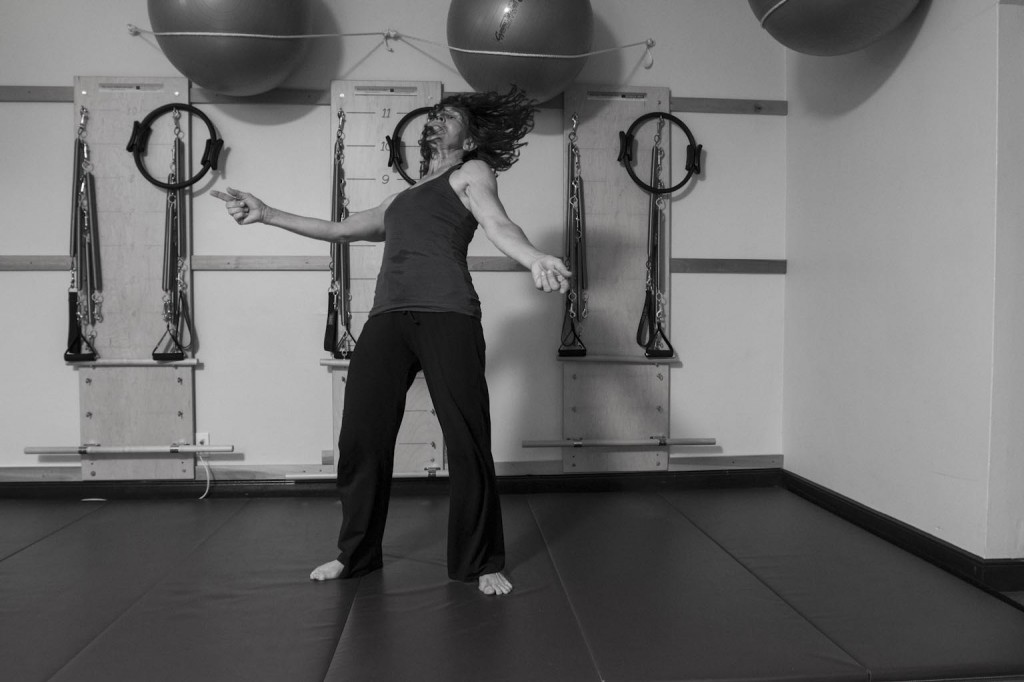
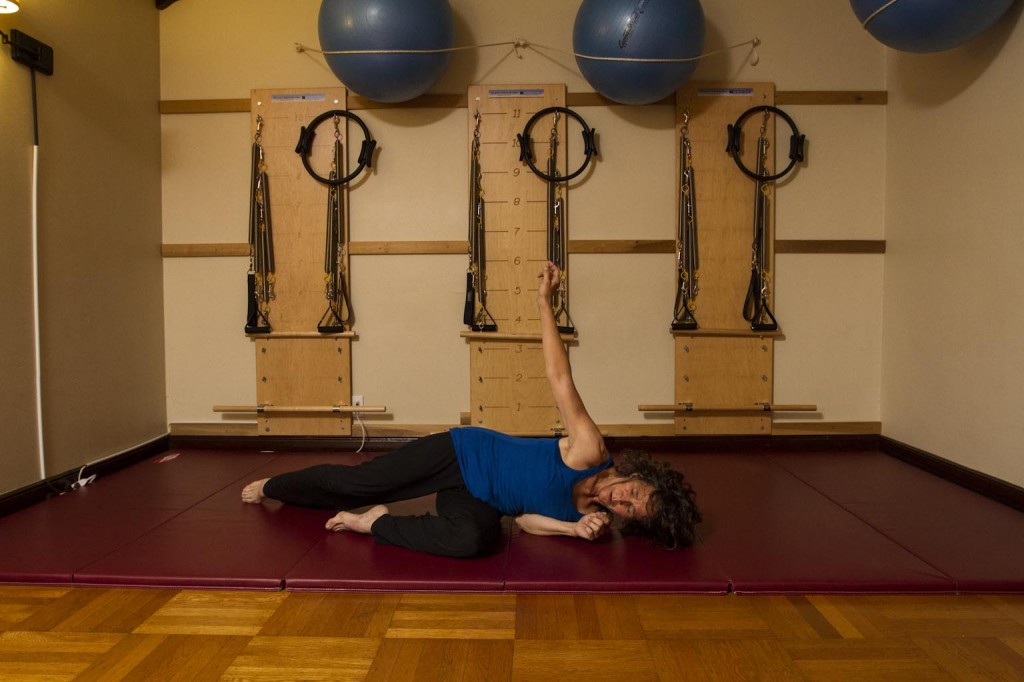
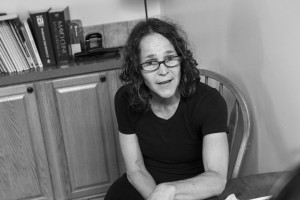
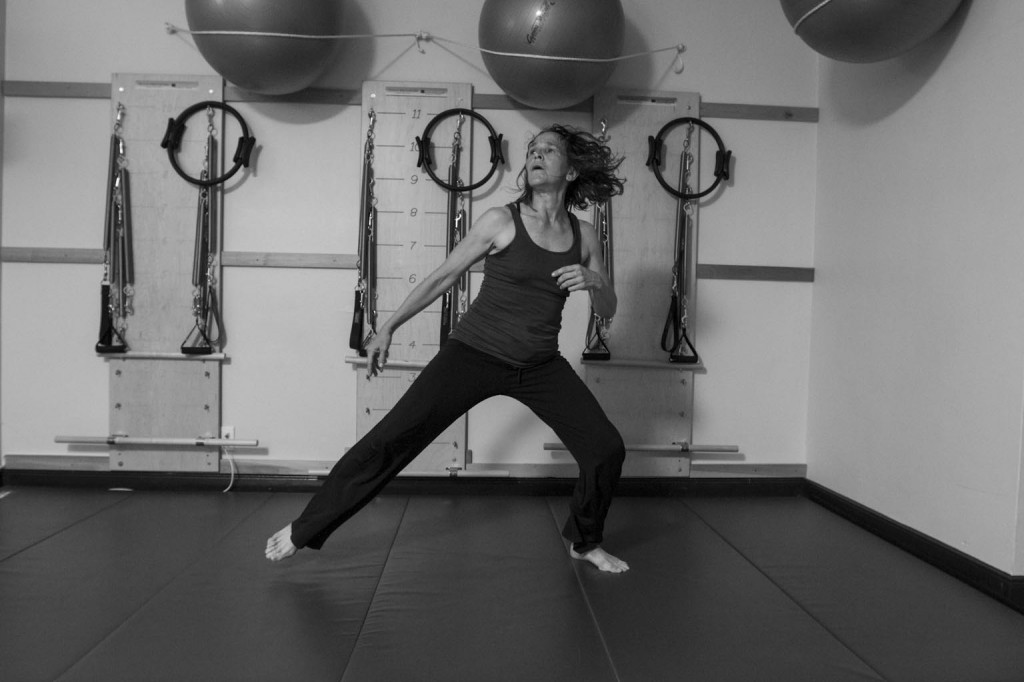
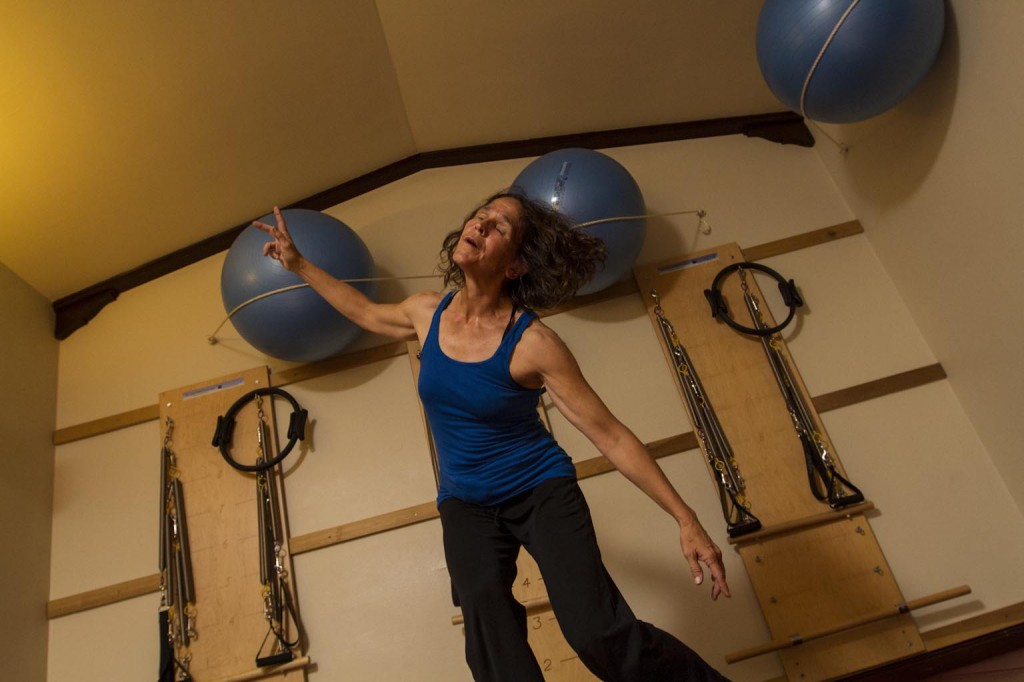
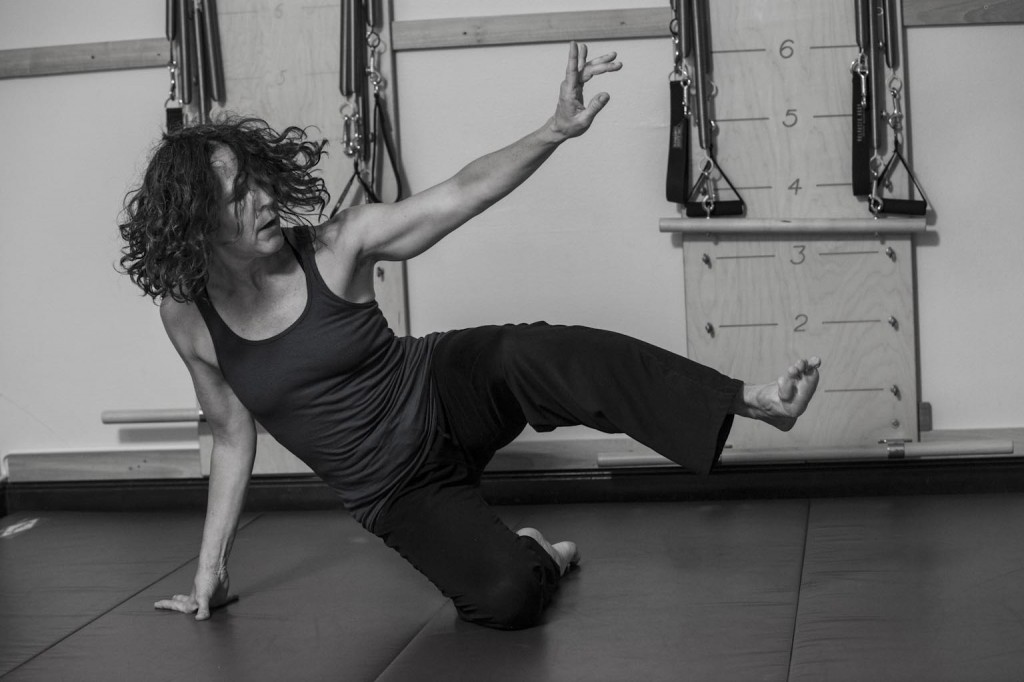
One Response to “Staying Honest: An Interview with Lizz Roman”
I have been reading out a few of your articles and i must say pretty nice stuff. I will definitely bookmark your website.
Comments are closed.